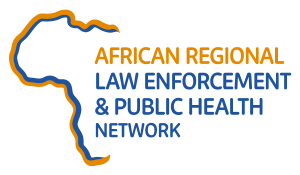
Compiled by Munya Katumba, Co-ordinator, African LEPH Network
The Africa Law Enforcement and Public Health Network was launched at the ALEPH2024 conference at the University of Pretoria, South Africa on the 4th of December 2024. One of the founding members of ALEPHN is Justice Zione Ntaba from Malawi. Justice Ntaba strongly believes that complex issues and the interconnected world require a transformative and responsive approach that goes beyond traditional institutional boundaries to address systemic challenges. She further stated in her remarks at the ALEPH2024 closing ceremony that the intersection of justice, public health, and human rights demands a sophisticated, integrated strategy that recognizes the fundamental interconnectedness of social systems. She further highlighted that the need of ALEPHN is from a critical understanding that effective solutions cannot be developed in isolation, but must instead draw from diverse expertise, perspectives, and institutional capacities.
Justice Ntaba emphasised that the following principles become very important in the life of ALEPHN:
1. A multi-sectoral approach is critical for effective dialogue and learning, requiring strategic involvement of social workers, legal aid providers, prosecutors, judicial officers, police offices, medical officers and all other players.
2. Significant investment in diversity, equity, and inclusion is essential to enable law enforcement to serve diverse population needs, with particular focus on key populations in public health contexts.
3. African public health systemic challenges must be addressed through human rights-based measures prioritizing human rights, focusing on dignity, inclusivity, and comprehensive social solutions.
4. Policing and the justice system should be fundamentally positioned as primary mechanisms for promoting and protecting human rights, ensuring consistent adherence to the rule of law.
5. The role of policing must underscore that policing is a legal attribute that extends beyond enforcement and in the performance of policing, it should be done in justice system mechanisms are transparent , accountable and equitable
6. Intersectoral collaboration is not optional but imperative for protecting human dignity, upholding justice, and creating integrated, holistic approaches to complex social challenges.
7. Institutional strategies must transcend traditional boundaries, creating adaptive frameworks that can respond effectively to diverse societal needs and emerging challenges.
8. The protection of human rights should be a central, non-negotiable principle guiding all policy and legislative development, institutional practices, and systemic interventions.
In conclusion, she stated that these principles represent more than a theoretical framework; they are a call to action for fundamental institutional transformation. By embracing a holistic, collaborative, and human rights-centered approach, societies can develop more responsive, equitable, and effective systems of justice and public
health. The path forward requires courage, creativity, and an unwavering commitment to human dignity; or, as we Africans say, ubunthu or umunthu – recognizing that true progress emerges when we break down silos, amplify diverse voices, and center our collective efforts on the fundamental worth of every individual but more so the promotion and protection of personal freedoms and human rights.
Justice Zione Ntaba is an accomplished jurist serving as a Judge on the High Court of Malawi. She presides over cases at the High Court Zomba Registry in the Eastern Judicial Region. Her expertise and dedication to justice allows her to serve in the civil as well as family and probate divisions.
Justice Ntaba’s career spans various realms of the legal profession. She began her journey at the Ministry of Justice as a prosecutor, civil litigator, and legislative draftsperson, gaining a comprehensive understanding of criminal and civil law and legislative processes. This foundational experience paved the way for her subsequent roles and achievements in the legal field.
In a pioneering move, Justice Ntaba assumed the first Director of Legal Affairs and Board Secretary position at the Malawi Energy Regulatory Authority. In this capacity, she played a pivotal role in shaping legal frameworks within the energy sector, ensuring regulatory compliance and fostering equitable practices. Her innovative approach and dedication to upholding legal standards earned her recognition as a trailblazer in the field.
Her proficiency spans a broad spectrum of legal domains, including energy law, international law, urban law, constitutional law, and human rights law. She is particularly passionate about issues concerning human rights, gender, children, disability rights, climate justice, and health. Furthermore, Judge Ntaba’s expertise and commitment are recognized through her participation on several boards, committees and organizations in Malawi and Africa, including the Women Judges Association of Malawi, Judicial Action Group, the African Judges Forum on AIDS/HIV, Human Rights and the Law, the African Chapter of the International Association of Refugee and Migration Judges, Economic Association of Malawi (ECAMA), the Disability HIV and AIDS Trust. She was also a World Vision Ambassador on Ending Child Marriages in Malawi, she continues to advocate for the protection of vulnerable youth. Her dedication to community engagement is further exemplified through her work with young Malawians to foster positive change.
Justice Ntaba is also keen facilitator and trainer as she conducts workshops and seminars on various aspects of law, both nationally and internationally. This commitment to education and empowerment underscores her belief in the transformative power of judicial training, legal empowerment and advocacy. Justice Zione Ntaba as a founding member of Africa Law Enforcement and Public Health Network will play a strategic and instrumental role in ensuring the network grows and plays a fundamental role to make life safer and better for all.






